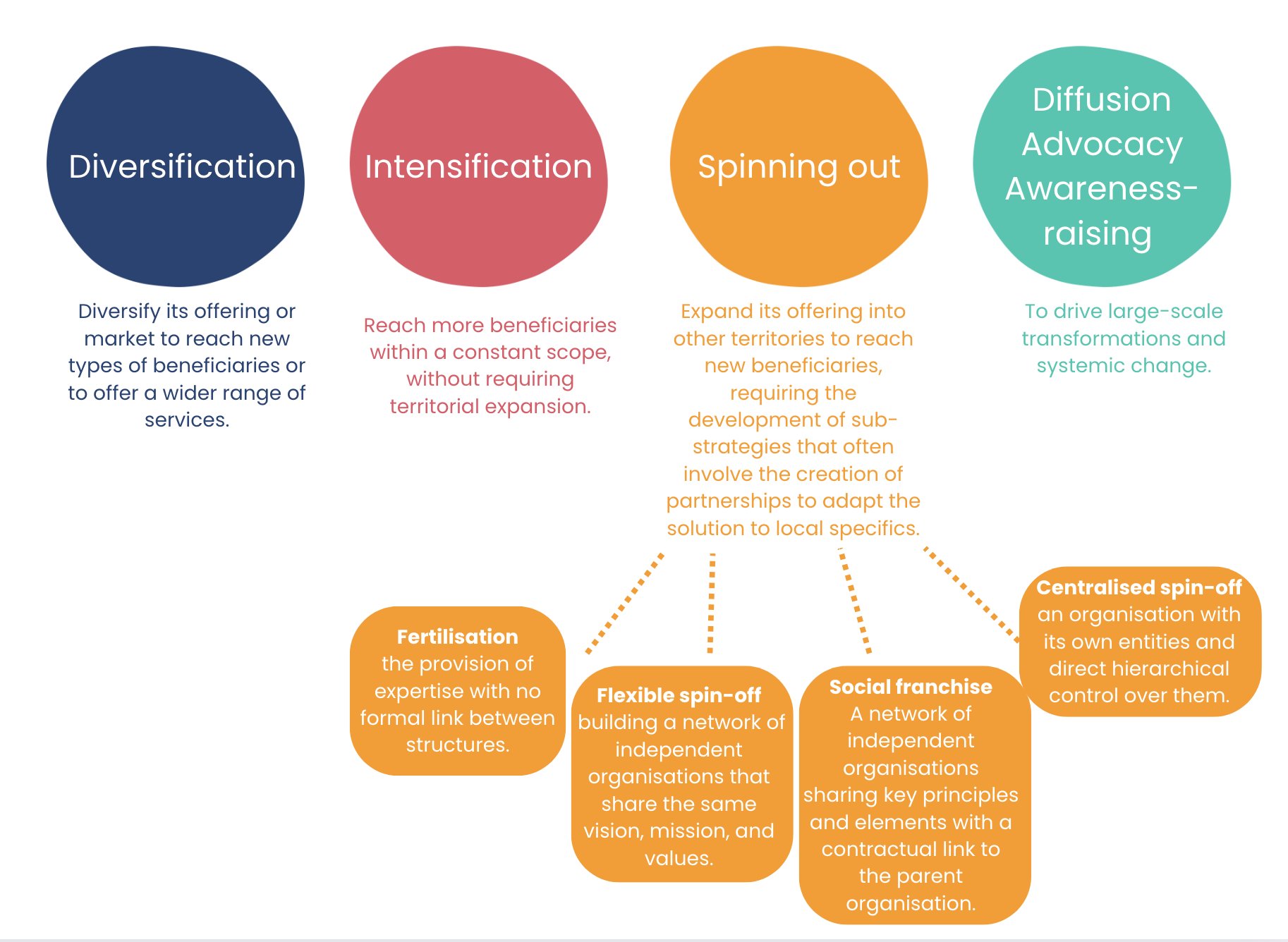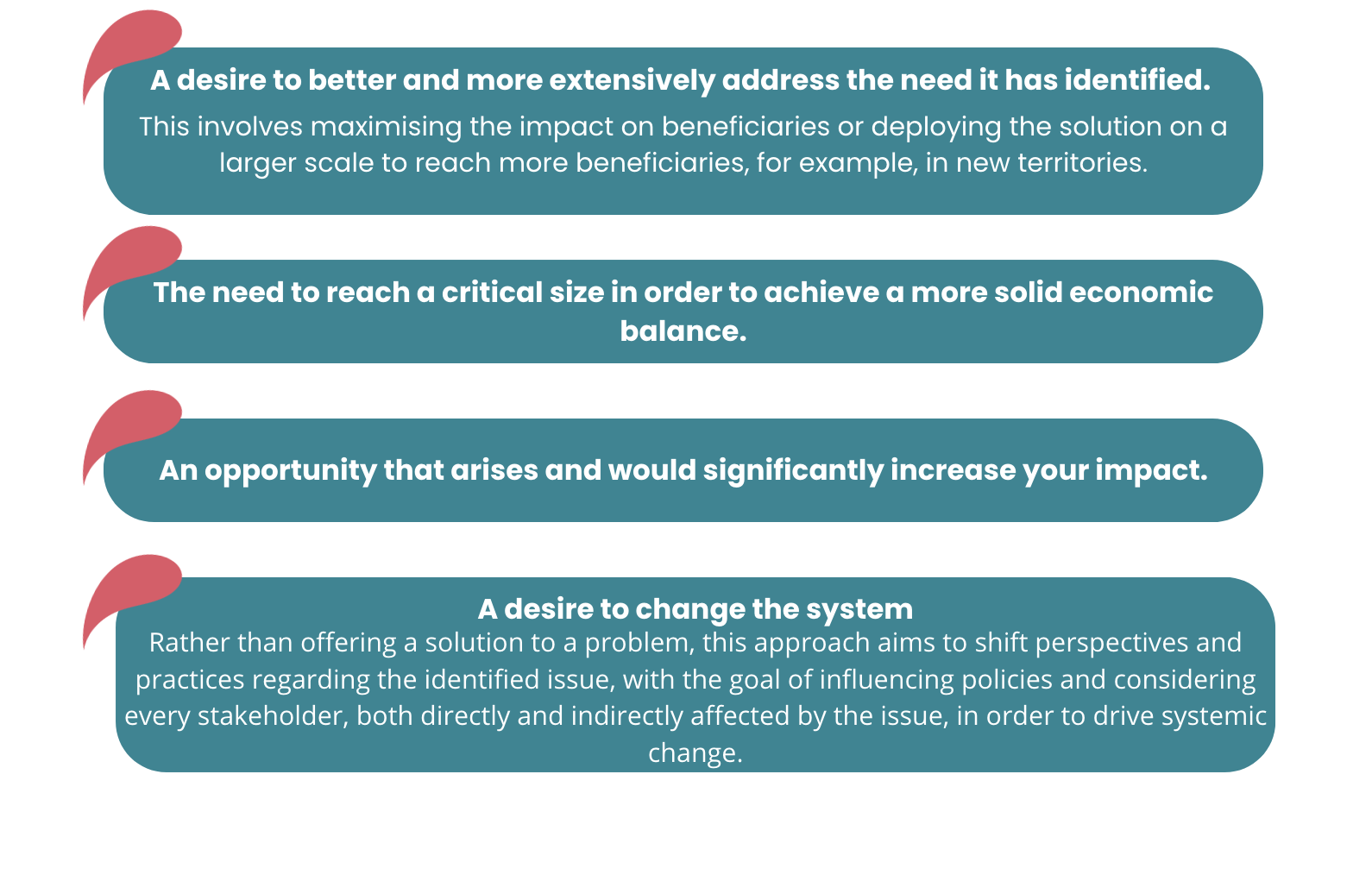Everything you need to know about scaling up

Scaling up, or how to increase social/environmental impact
Scaling up, refers to an organisation with social and environmental impact seeking to expand its reach. This process does not necessarily mean increasing the size of the organisation. Its means amplifying the impact of its solution: reaching more beneficiaries, strengthening the impact, expanding into new territories, etc.
When considering scaling up, it is crucial to revisit the origins of your organisation. Ask yourself “Why”: what problem did you want to solve with this innovation? In other words, what global change did you hope to achieve? Everything starts from there: an identified problem you want to address, with the goal of seeing it alleviated or even eradicated one day.
This is what we call the “End game.” It refers to the role an organisation aims to play in solving a social problem. From this, many different scaling strategies can emerge.
Designing the right scaling strategy cannot be done alone. It is crucial to identify all the stakeholders who address this problem. Engaging and collaborating with them creates significant impact for beneficiaries. The solution then becomes relevant, sustainable, and part of a broader systemic framework.
When we support organisations in their scaling journey, we often begin with the theory of change. This ensures that the vision, mission, and ambitions are clear and shared. We then analyse the maturity of the projects and organisations. Have they validated their concept, meaning their ability to generate impact? Have they also validated their model, meaning their capacity to sustain that impact within a clear scope? This analysis then reveals the actions needed to strengthen the model before moving to scale.
Understanding scaling up
Multiplying the impact of a social innovation requires a strategic reflection. It involves finding ways to replicate, spread, or adapt a proven model on a larger scale. Scaling up is not about growing in size. It is about multiplying impact in an effective and sustainable way.
There are many reasons why an organisation may want to scale up. Yet they all point to the same goal: addressing a social issue to create broader change within society.
Scaling up must be approached with preparation, planning, and continuous adaptation to challenges. Why? Because it requires significant resources, financial, and even more importantly, human.
The different scaling strategies
Scaling strategies are numerous, and several factors need to be considered to guide the choice towards one strategy over another. The most common scaling strategies are as follows:

All these scaling strategies can be carried out with other stakeholders through cooperation, mergers, coalitions, and alliances.
To go Further
👉 Want to know more or need support with scaling up? Contact us.
👉 Discover our special booklet on social franchising.
Date : 5 july 2024

